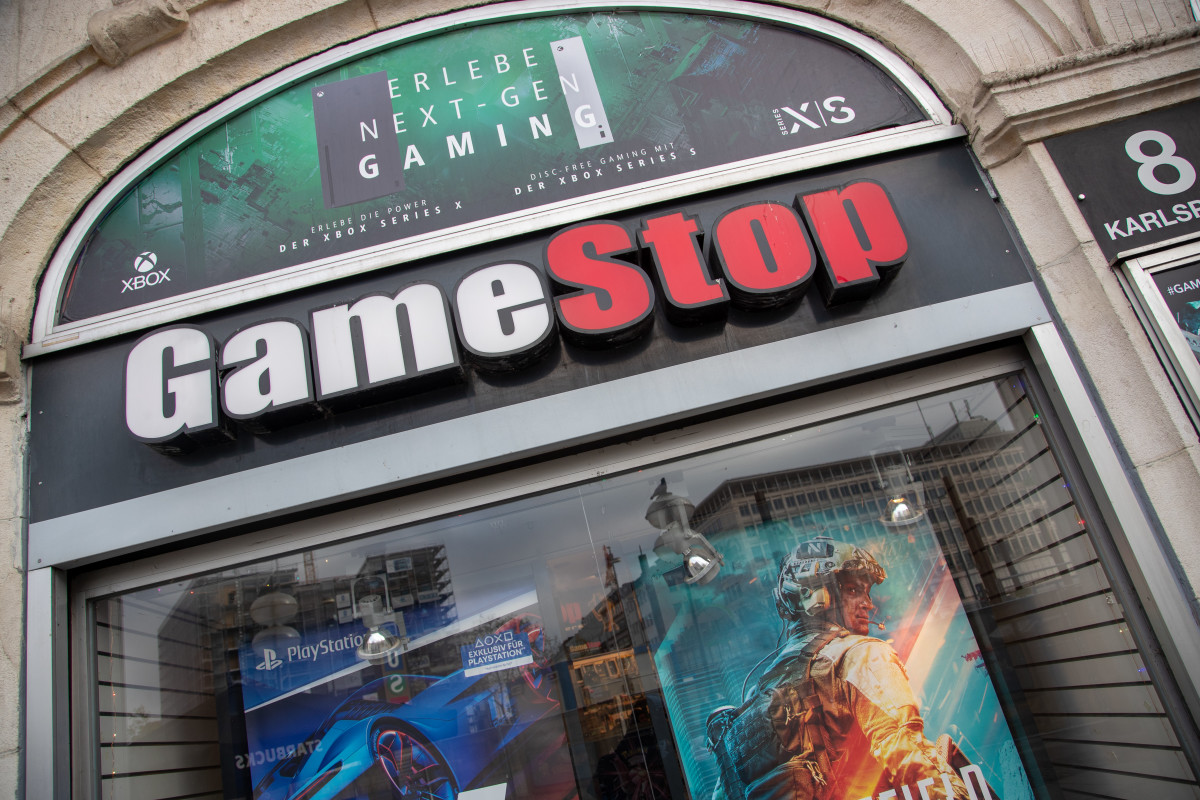
After reporting its latest quarterly results, GameStop shares slumped lower in early trading on September 11.
GameStop (GME) , which has had only one profitable non-holiday quarter in the past three years, saw revenues over the three months ending in July fall nearly a third from the same period last year to $798.3 million as gamers continue their trend of online purchases and streaming options over brick-and-mortar sales.
The group managed to squeeze out a rare summer profit of $14.8 million, or 4 cents per share, thanks in part to a big decline in overall expenses tied to its ongoing move to shutter stores and cut costs.
Related: Keith Gill’s net worth: How much did the “Dumb Money” investor make on GameStop?
GameStop expects that drive to continue, telling investors in a Securities and Exchange Commission filing that it has started a review of its international business and will also examine "underperforming" assets in the United States.
"While this review is ongoing and a specific set of stores has not been identified for closure, we anticipate that it may result in the closure of a larger number of stores than we have closed in the past few years," GameStop said.

SOPA Images/Getty Images
GameStop has around 4,100 retail outlets worldwide, with around 2,915 of them based in the United States.
As of last month, the Grapevine, Texas-based group employed 16,000 people globally, around half of them full-time.
Bank of GameStop?
Still, even amid sliding sales and ongoing cost cuts, GameStop has managed to hold cash and equivalents of around $4.2 billion, thanks in part to the stock's meteoric rise of more than 1,660% over the past five years.
That's led to a series of share sales from CEO Ryan Cohen, the past two of which have totaled 120 million and netted the group around $3 billion.
GameStop said Tuesday that it plans to sell another 20 million Class A shares, which could raise nearly $400 million in new proceeds.
Related: GameStop millionaire makes huge bet on battered airline
Wedbush analyst Michael Pachter, who lowered his GameStop price target by $1 to $10 per share following last night's update, argues GameStop could effectively close all of its stores and "operate as a bank," given its cash position and lack of a near-term growth strategy.
"Management continues to shun investor interaction, forgoing the customary conference call and Q&A session that typically accompanies earnings releases," Pachter said.
"The company has not provided formal sales or earnings guidance since 2019 and does not help investors understand the pace of store closures or the performance of new revenue categories,” he added.
That hasn't stopped key investors from reaping huge profits from GameStop's 'meme stock' popularity, however.
Keith Gill, better known by his online moniker Roaring Kitty, has an overall position that, by some estimates, makes him the company's fifth-largest investor after returning to the public eye earlier this spring through his account on the X social media website.
Accounts linked to the former MassMutual executive showed that Gill, who posted a 'Toy Story 2' image on his X account last week, subsequently bought and sold 10,000 call options on GameStop shares that Reuters estimates earned him $550,000 in less than half an hour.
GameStop shorts losing their shirts
Call options give the holder the right, but not the obligation, to buy the underlying asset (in this case GameStop shares) at a fixed price by a certain date.
GameStop shares were marked 15% lower in early Wednesday trading to change hands at $19.95 each, leaving the stock with a six-month gain of around 38% and a market value of just over $7 billion.
More Wall Street Analysts:
- Analyst says Intel should drop a key business to survive
- Analysts adjust Bookings.com stock price target on travel market
- Analysts place bets on Las Vegas strip casino stocks
Short interest in the stock, however, remains elevated. Data from S3 Partners shows bets against the group of around $854 million, or 9.2% of the stock's outstanding float.
Short-sellers bet against a company by borrowing shares and selling them. If the price of the stock declines, the short-sellers will buy back the shares at a lower price, return the borrowed stock (while paying a fee), and pocket the difference.
However, that trade hasn't worked out terribly well, as S3 estimates short sellers are down around $505 million this year, including $17 million in September losses alone.
Related: Veteran fund manager sees world of pain coming for stocks







